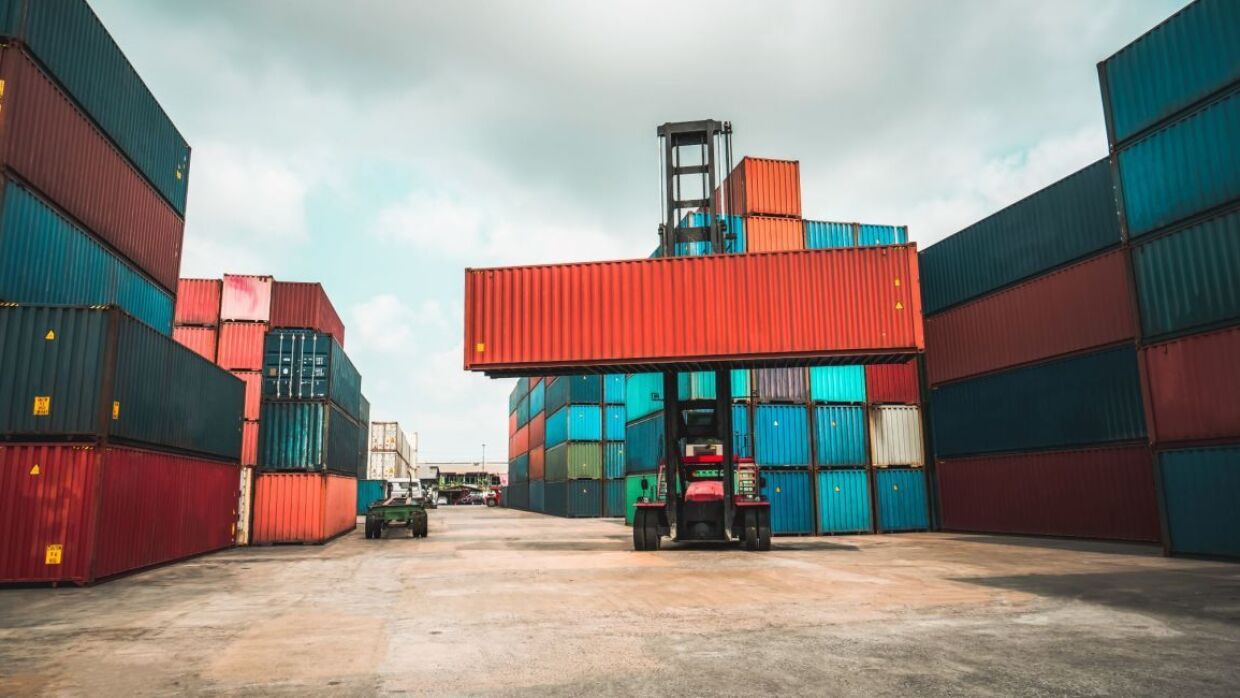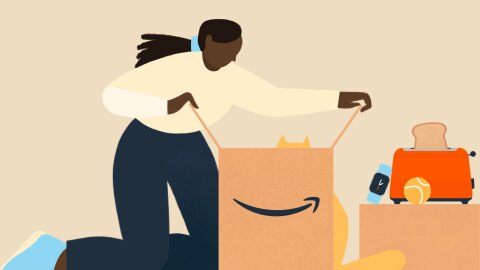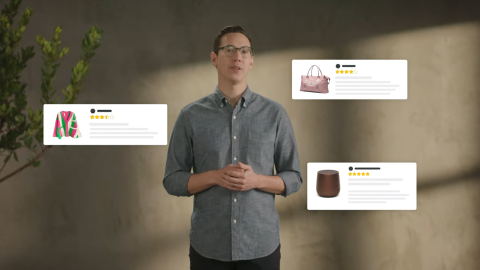We believe we have a responsibility to protect consumers, brands, and our store from counterfeit products and we work hard to do that. In 2020 alone, we invested over $700 million (£518 million) globally and dedicated more than 10,000 employees to stopping fraud, counterfeit, and abuse. By using a combination of advanced machine learning capabilities and expert human investigators, we have built robust proactive controls to protect our store from bad actors and bad products. We have also developed powerful and industry-leading tools for brands—including Brand Registry, Project Zero, and Transparency—so they can partner with us to help ensure only authentic products are sold in our store. Because of the significant resources Amazon has invested in anti-counterfeiting technologies and in building partnerships with brands, we have been able to provide customers with a trustworthy shopping experience where less than 0.01% of the products sold on Amazon last year received a counterfeit complaint from a customer. While we are proud of the progress we have made, we know that counterfeiters will not stop trying to deceive consumers, and that we will need to keep investing and innovating to stay ahead of counterfeiters until we have driven counterfeits to zero.
Unfortunately, counterfeiting remains a persistent retail-industry problem around the world. The Organisation for Economic Cooperation and Development (OECD) estimates that pirated and counterfeit products make up 2.5% of world trade—that’s $464 billion a year (approximately £342 billion), or roughly the gross domestic product of Belgium. So while the prevalence of counterfeit products on Amazon may be statistically low, this issue persists throughout the retail industry and across the globe. Counterfeiters deprive brand owners of the value of their intellectual property and compete unfairly with honest entrepreneurs. Moreover, counterfeiting is sometimes a predicate crime to far more nefarious activity, such as drug trafficking, child exploitation, and terrorism. While counterfeiting is illegal in most countries, for too long, counterfeiters have not been held accountable enough for their crimes.
In 2020, we launched the Counterfeit Crimes Unit (CCU) to help hold counterfeiters accountable through the courts and through law enforcement. This global team, which is made up of former prosecutors, former FBI agents, experienced investigators, and data analysts, pursues targets around the globe and supports law enforcement efforts to bring to justice to those attempting to sell counterfeit in our store. The CCU has made good progress in its first year, and has forged beneficial relationships with law enforcement, demonstrating that our anti-counterfeit efforts are more effective when we work together. Since its launch, the CCU has:
- Provided in-depth referrals and evidence of over 250 counterfeiters for criminal investigation in the U.K., the European Union, the U.S., and China.
- Filed civil litigation against 64 counterfeiters.
- Disrupted counterfeiters and their supply networks through civil law suits, and joint enforcement actions around the world including against suppliers, logistics providers, social media influencers, fake invoice providers, identity fraudsters, and website spoofers.
- Partnered with a wide range of brands to pursue counterfeiters including GoPro, Valentino, and Salvatore Ferragamo.
Despite these successes, it has become increasingly clear that we have to make bold changes in how we work together across the private and public sectors to stop counterfeiters. We need to better protect our borders from counterfeit goods, shut down confirmed counterfeiters across the industry, and increase resources for law enforcement to pursue and prosecute individuals trafficking in counterfeits. Based on what we have learned from working with law enforcement to fight counterfeiters, we recommend taking the following steps:
1. Exchange information on counterfeit activity to help stop counterfeits at the border
Last autumn, in the U.S. Amazon’s CCU provided information to U.S. Customs and Border Protection (CBP) and Homeland Security Investigations (HSI) that helped block a shipment of counterfeit goods worth millions of dollars from passing through a U.S.-based logistics provider. The information provided by Amazon, combined with the investigative work of CBP and HSI, enabled law enforcement to seize eight lorryloads of fake car grilles bearing trademarks from several car brands. Not only did this collaboration prevent the counterfeits from reaching Amazon customers, but it also stopped the counterfeit grilles from entering the supply chain and being sold through any other retailer or store.
We have also seen the power of information sharing in reverse. In 2020, we received a tip from CBP about a shipment of earbud case covers CBP had seized bearing unauthorized Champion logos. We immediately quarantined the counterfeiter’s additional inventory in our fulfilment network and terminated their accounts. CCU then worked with the rights owner, HanesBrands, to sue the 13 counterfeiters in U.S. courts.
These are models that could be replicated in the U.K. Customs agencies should regularly inform fulfilment networks (like Amazon’s) when the agencies seize shipments bound for a fulfilment network, and policymakers should remove any impediments to that crucial flow of information, and develop safe sharing frameworks (along the lines of the Joint Money Laundering Intelligence Taskforce). This would enable the fulfilment network to take action on additional counterfeits and provide greater aid to law enforcement. Similarly, Amazon supports all marketplaces and logistic providers sharing information on counterfeit activity with customs agencies to aid in their detection and seizure efforts and to strengthen law enforcement’s ability to dismantle the criminal networks behind these illicit goods.
2. Share information about blocked counterfeiters to help the industry stop more counterfeiters earlier
While our investments to stop counterfeiters are paying off in our store, we know they are motivated and will try to quickly sell their illegal products across many other channels, including their own websites, other online marketplaces, offline channels, and more. In fact, as part of our counterfeit litigation efforts, counterfeiters have openly stated that they are increasingly focusing on other retail channels than Amazon because of our work in stopping them.
This success is why information sharing about known counterfeiters is so important—it improves everyone’s visibility and allows stores to alert one another and take action across the industry. We have encouraged this data sharing to help the entire industry get better. We are excited that recently, a small number of companies (including Amazon) have begun to pilot a counterfeiter information exchange program in the U.S. to better understand the value of this shared data. The early results are encouraging. Amongst the list of confirmed counterfeiters shared with us by other stores, we found matched accounts that had also tried to sell in our store. These are counterfeiters that other industry participants could have identified and stopped sooner if we had all shared our blocked counterfeiter data with each other. The private sector needs to lead the way in creating a scalable solution for real-time information sharing on confirmed counterfeiters, and we encourage more companies to work with us in building these partnerships in the future.
3. Increase resources for law enforcement to prosecute counterfeiters
In the past year, CCU has reported to law enforcement authorities in the UK, Europe, the U.S., Canada, and China all confirmed counterfeiters that we have blocked from our store. For more than 250 counterfeiters, CCU has gone further and provided authorities with in-depth referrals and evidence.
Amazon welcomes, acknowledges, and deeply respects the hard work of law enforcement and prosecutors in fighting counterfeits around the world, especially the City of London Police’s national lead force for fraud and the Police Intellectual Property Crime Unit (PIPCU). The reality, however, is that teams around the world require more resourcing and attention that is needed to stop these counterfeiters.
We continue to make good progress in proactively protecting our store by reducing the rate of counterfeit complaints from customers increasing the number of brands in Brand Registry and leveraging our industry-leading anti-counterfeit tools for brands. We are also increasing, the number of criminal referrals and litigation cases that we pursue to partner with law enforcement to bring counterfeiters to justice. Amazon will continue to invest and innovate to protect customers, brands, and our store. However, it’s clear that stopping these bad actors will require the private and public sector to share parcel data and information on confirmed counterfeiters, and more resources for law enforcement to pursue prosecution.
We realise that this will require specific policy and governmental changes and have published more detailed policy recommendations for the U.K.
Consumers deserve to get the authentic products they purchased. The retail industry and government bodies must step up, work together, and stop counterfeiters to protect consumers, rights owners, and store operators from these criminals.
Tim Moss, CEO of the UK Intellectual Property Office:“I welcome the announcement made by Amazon today and their ambition to tackle counterfeiting. This announcement rightly recognises the importance of public private partnership. As our forthcoming intellectual property infringement strategy will set out, we believe that rights holders, traders, retailers and governments must work together to address this complex, global issue. At the heart of this approach is sharing data and intelligence, educating businesses and the public, and investing in schemes to minimise the availability of, and demand for counterfeits. We look forward to seeing Amazon’s proposals for action and working with them and others across industry to make this aim a reality.”
Phil Lewis, Director General, ACG (Anti-counterfeiting group):“We greatly welcome Amazon’s commitment to driving counterfeit to zero and the plans it released today. ACG is already working with Amazon to stop the flood of counterfeit goods from entering UK and international markets. Working together, over the past year, ACG and Amazon have developed even closer working relationships, which have built greater knowledge and awareness about how counterfeiters work and how they can be prevented from abusing systems to market their increasingly dangerous goods.”











